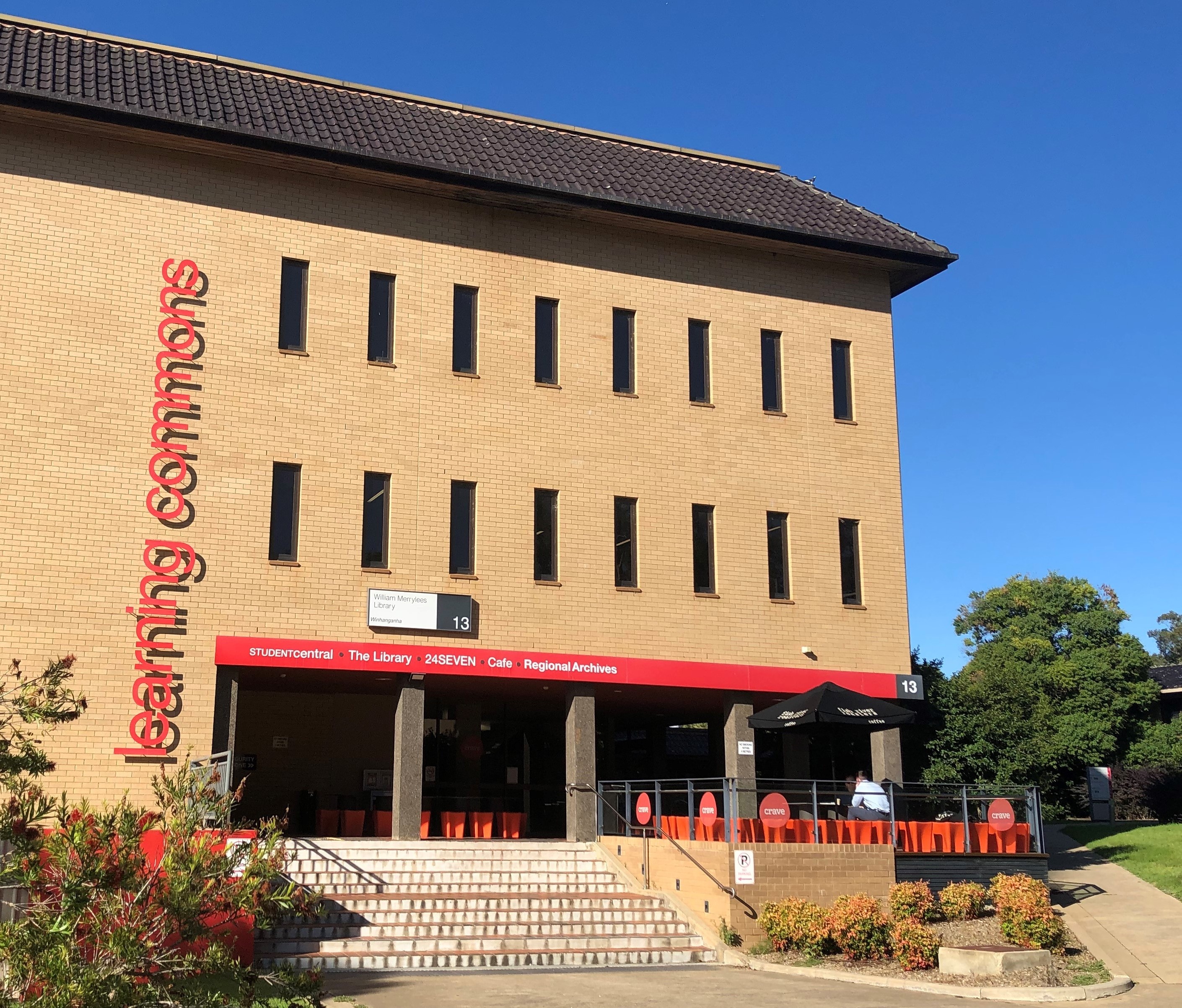Charles Sturt University Regional Archives and University Art Collection
 Our Search Room is located on the top floor of the Learning Commons on the Wagga campus of Charles Sturt University (see map). The Reference Archivist is available at the Search Room to help you identify records in our collection relevant for your research and will retrieve your items from the repository on your behalf.
Our Search Room is located on the top floor of the Learning Commons on the Wagga campus of Charles Sturt University (see map). The Reference Archivist is available at the Search Room to help you identify records in our collection relevant for your research and will retrieve your items from the repository on your behalf.
You don’t need an appointment to visit but we strongly encourage you to contact us first to talk about your research needs, especially as some of our records are off-site and will need to be delivered to the Search Room.
Please be aware that some collections are subject to copyright restrictions by law and so we ask that you consult our staff before undertaking your own copying.
If you are unable to visit us in Wagga Wagga, our Reference Archivist can provide assistance with research via phone, email or post, and undertake short research enquiries for a fee.
In making a formal request to the Reference Archivist, you should include all relevant details to your request, including what you already know and what records you have tried. This will help to focus our attention on how we can assist you and will avoid duplicating what you already have.
Digitised records can be supplied electronically for a fee, taking into consideration copyright regulations and access conditions.
We will advise you of any costs involved before proceeding with your research enquiry or digitisation request. Credit card facilities are available for payment.
Service Type | Description | Fee | Notes |
| Standard Research | Research with exact dates and references provided | $22 (flat rate) | Applies to straightforward enquiries |
| Complex Research | Research without exact dates or requiring extensive effort | $66 per hour | Applies to lengthy or complex enquiries |
| Personal Research | Visiting the Search Room | Free | Appointments are encouraged |
| Staff Copying | Photocopies made by staff (B&W, Colour, A4 and A3) | $2.20 per page | Subject to copyright and conservation restrictions |
| Self-Service Copying | Use of personal devices for copying | Free | Users may bring their own camera, tablet, or smartphone |
| Document Digitisation (Standard) | Digitisation of documents of a standard size | $22 per 10 pages | Applies to documents up to A3 size (300dpi). All scans undertaken by staff, delivered electronically |
| Document Digitisation (Complex) | Digitisation of documents of non-standard size needing special handling For example: 1 large format map = $22 100 pages of a large register = 1 hour @ $66 | From $22 (up to $66/hr) | Applies to fragile, oversized, or high-resolution (600dpi) scanning requests. All scans undertaken by staff, delivered electronically |
| Provision of Daily Advertiser Photographs | Access to photographs and negatives from the Daily Advertiser and Tom Lennon Collections | Price for copies determined by Australian Community Media | Digitisation undertaken by staff only after consultation with Australian Community Media. Subject to strict copyright regulations |
| Photographs and Negatives Digitisation | Digitisation of photographs and negatives | $22 up to 3 images | Applies to high-resolution (600dpi) digitisation of photographs and negatives |
If you believe you have a collection of records that could be of interest to us, contact the Collection Management Archivist to discuss their potential donation. Please remember, we only have a finite amount of space, so only collections of significant research value will be considered. Records must be in a fair condition and comply with our collecting policy.
Staff of Charles Sturt University who wish to deposit University records with us must contact the University’s Manager of Policy and Records before sending records to the Archives. Many records of the University do not require permanent archiving and must be examined by the Records Manager to establish their retention value.
Procedures for the archiving or disposing of University records can be found on the Records Management website.
Please note that it is the responsibility of the Charles Sturt University Regional Archives to carry out routine destruction of University records in accordance with legislation and guidelines as outlined by the State Archives and Records Authority of New South Wales. Under the NSW State Records Act 1998, universities are defined as 'public offices' and made subject to the requirements of the Act.